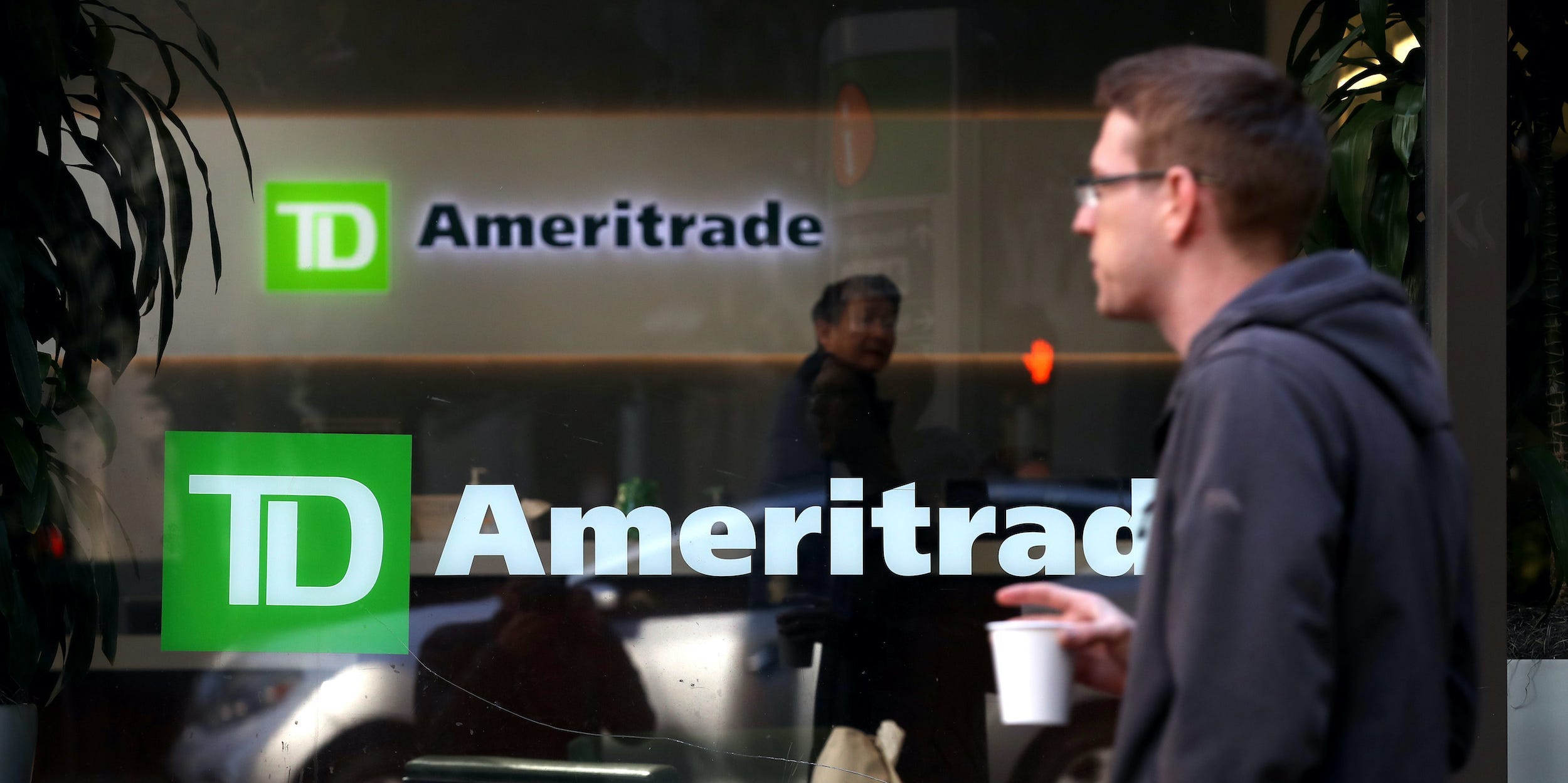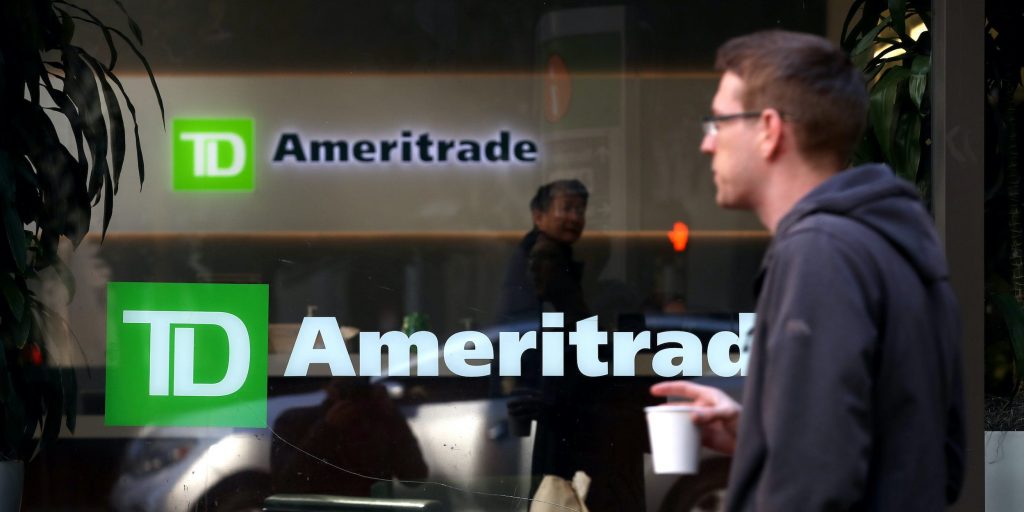
Justin Sullivan/Getty Images
- Former TD Ameritrade CEO Joe Moglia said banning payment for order flow would be a "disservice" to retail traders.
- Moglia said retail traders get everything for free on a trade except a "little spread."
- He also told Bloomberg News that meme stocks, in his opinion, are here to stay.
Former TD Ameritrade Chief Executive Officer Joe Moglia told Bloomberg News that banning a controversial practice used by some investing apps would be harmful to retail traders.
The practice, known as payment for order flow, allows retail traders to invest – nearly – free of charge, Moglia told the news outlet.
"I don't see payment for order flow going away," he said. "That would be a disservice to the individual investor."
In the payment-for-order-flow model, market makers execute trades for retail investors on apps like Robinhood and collect on the difference between the bid and ask price.
Moglia said trading for retail investors is simple and easy; they often just have to "press a button." But behind the scenes, he said, there's a lot of technology that goes into executing on that trade.
"Somebody's gotta pay for that, and that's that little spread that takes place on every trade," he said.
Since the GameStop saga earlier this year, in which retail traders caused a massive spike in shares of so-called meme-stock companies, payment for order flow has been under scrutiny. In August, the US Securities and Exchange Commission said a ban was on the table.
Some have criticized payment for order flow for having an inherent conflict of interest. According to NYU Stern professor Scott Galloway, companies like Robinhood are "motivated to sell orders to the market maker that offers the highest payment for the trade rather than the best price. It's like affiliate marketing, but for your financial future."
But others like Ken Griffin - founder of market-maker Citadel Securities, which has been in the spotlight since the GameStop saga - said payment for order flow has helped in the democratization of finance, which is "good for everybody."
As for meme stocks, which brought the practice to light, Moglia said they're "here to stay," echoing other market experts who have said the same about the new asset class.

